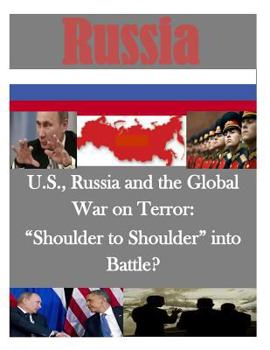U.S., Russia and the Global War on Terror: "Shoulder to Shoulder" into Battle?
The demise of the Soviet Union shifted paradigms around the world, causingmany to conceive of a new era of cooperation between the new Russian Federation and the United States. Following the terrorist attacks in the U.S. on 11 September 2001, many assumed the resultant war on terrorism would finally unite the two nations against a common enemy, aligning interests as never before. In some ways cooperation was enhanced, but interests were hardly aligned. The siege of the Beslan middle school in September 2004, a "Russian September 11th," brought renewed hopes for alignment between the two nations against an enemy that knew no bounds. Again, that appears notto be the case. This volume attempts to answer why that is so, and how might policy interpretation and implementation help realize such hopes.This work begins with a review of the broader foreign policies of the United States and Russia and a specific review of each nation's perspectives on the war on terror and on cooperation. It reviews some of the issues Russia has faced during its transition from Soviet rule to more liberal institutions, and it reviews the cooperative efforts between the two nations to date, both bilateral and multilateral. It ends with recommendations for policy implementation based on the fundamental differences in perceptions between the two nations, given the assessed policies of the United States. It is believed that by executing foreign policy with a consideration for the unique perspectives of each nation, more effective cooperation in the war on terror and elsewhere can be achieved.
Format:Paperback
Language:English
ISBN:150025584X
ISBN13:9781500255848
Release Date:June 2014
Publisher:Createspace Independent Publishing Platform
Length:352 Pages
Weight:1.80 lbs.
Dimensions:0.7" x 8.5" x 11.0"
Customer Reviews
0 rating





